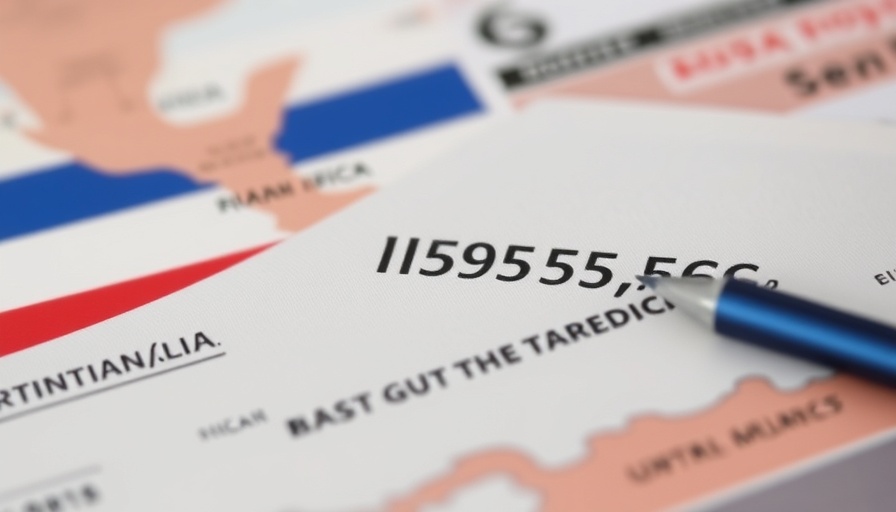
Understanding the Visa Moves Against Central American Nationals
In a significant step towards enhancing national security, the U.S. government has introduced visa restrictions on specific Central American nationals suspected of colluding with the Chinese Communist Party (CCP) to undermine democracy and the rule of law in Central America. The White House's recent announcement outlines how these restrictions aim to deter foreign interference while promoting stability in a region that has often been a hotspot for geopolitical tensions.
Why This Matters: The Protection of Democracy
This decision is rooted in a broader context of protecting democratic values in Central America. The U.S. has long viewed the region as critical to its geopolitical interests, and any actions perceived as threats to democracy trigger a swift response. According to a senior administration official, not only does this initiative target individuals, but it also sets a precedent encouraging nations in Central America to stand against external pressures that compromise their sovereignty.
The Historical Context Behind U.S. Actions
Historically, U.S. intervention in Central America has fluctuated between promoting democracy and facilitating political stability. With escalating tensions between the U.S. and China, particularly regarding trade and influence in Latin America, the introduction of visa restrictions can be seen as a continuation of a long-standing pattern where the U.S. seeks to counter China's strategic pushes into the Western Hemisphere.
The Role of Central American Allies
Central American leaders now face a pivotal moment. Many countries in the region rely on U.S. support for economic and military aid. This action serves as both a warning and a call to rally for stronger governance. Embracing democratic practices may not only strengthen their positions at home but also enhance their standing in international dialogues with the United States.
Broader Implications in the U.S. Political Landscape
This decision arrived against the backdrop of Congress' discussions on foreign relations and national security. With ongoing debates about U.S. immigration policies and the ever-present concerns of national security, the new restrictions resonate with significant political undertones, highlighting the intricacies of U.S.-China relations. Senators from diverse political backgrounds have weighed in, reinforcing the notion that upholding the integrity of democratic institutions abroad is a matter of national interest.
What’s Next? Navigating Future Relations
While the restrictions are immediate, the U.S. government will need to engage diplomatically to assure Central American nations that the goal is stability and mutual growth. This action may prompt discussions on how the U.S. can assist these nations to strengthen their own governance structures, allowing for a united front against not just external meddling from the CCP but also challenges such as corruption and poverty within their borders.
A Call to Action for Citizens
Awareness among U.S. citizens about international policy decisions can help shape future legislative measures. Engaging in discussions about the ramifications of such policies and understanding their role in global diplomacy strengthens democracy at home. Citizens should consider their positions on foreign affairs and engage with their representatives in Congress to support proactive policies that bolster democratic values.
 Add Element
Add Element  Add Row
Add Row 



Write A Comment